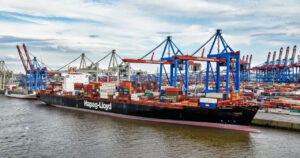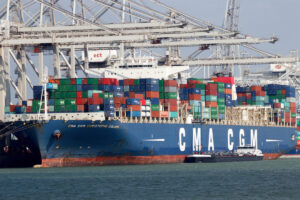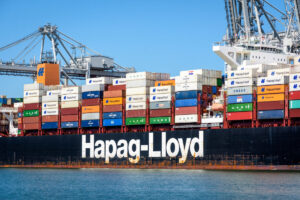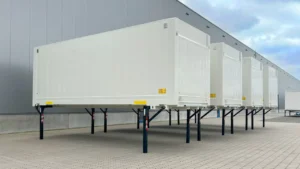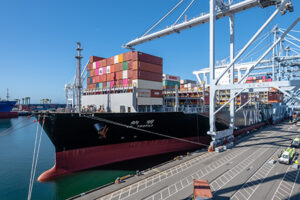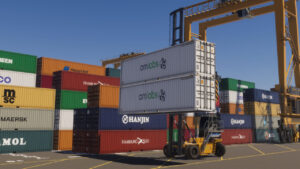Canada and the United Arab Emirates (UAE) have endorsed a new initiative to support the global energy transition to greener fuel across the maritime sector.
The two governments are among the first to show their support to the newly launched initiative, ‘Clean Energy Marine Hubs Initiative’.
The International Chamber of Shipping (ICS) and International Association of Ports and Harbors (IAPH), along with the CEO-led Clean Energy Maritime Taskforce, recently unveiled the project at the Clean Energy Ministerial (CEM) in Pittsburgh.
Under the Initiative – which will see public and private senior-level stakeholders from the ports, shipping, finance, and energy sectors across the energy-maritime value chain coming together – ICS and IAPH will seek action to promote production, export and import of low-carbon fuels.
Key objectives of the initiative include facilitating information and knowledge exchange on policies, programmes, and decarbonisation projects to de-risk investment and accelerate the commercial deployment of alternative fuels and technologies across countries.
“Currently, the expansion of the UAE’s hydrogen economy is in process with mega projects involving several of our leading ports,” said Eng. Nawal AlHanaee, Director of Future Energy Department, the UAE Ministry of Energy and Infrastructure.
“The two-gigawatt green ammonia project by Taqa, the Abu Dhabi National Energy Company, and Abu Dhabi Ports is one such project that will produce green hydrogen and process it into liquid ammonia, to be used in ships as bunker fuel and for export. This coupled with other endeavours by our ports will reinforce the UAE’s position as a key competitive maritime hub.
“Therefore, we are looking forward to our collaboration with all international governments, such as Canada, to reinforce the adoption of hydrogen technologies and fuels.”
READ: AD Ports maps out electric vehicles assembly facility
The initial concept for creating green marine hubs was announced earlier this year as a forum to enable policy makers and industry stakeholders to quickly unlock clean energy deployment.
Representatives of the maritime sector said the participation of Canada and the UAE has to potential to establish a “pathway” for others to follow.
“Resolving the energy transition challenge for shipping and the wider world requires broad-looking, multi-sector solutions,” said Patrick Verhoeven, Managing Director of the IAPH.
“Ports have a vital role to play, not only as bunker infrastructure providers but as new energy hubs in order for the economics around zero emissions fuels to work.
“Securing the backing of national governments, like that of Canada and the UAE today, will help kickstart collaboration between energy producers and the entire maritime value chain in getting those first hubs established.”
The bill sets carbon intensity standards for fuels used by ships and sets requirements to eliminate in-port ship emissions by 2030 in a bid to protect the health of port communities, address environmental injustice, and provide solutions to the climate crisis.


